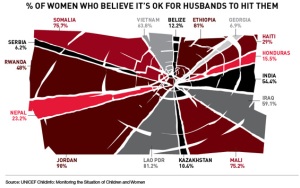Yesterday was World Cancer Day. And while I don’t want to make this blog completely about the various awareness days that come up, I thought it was a good segue to begin talking about why I started this blog in the first place.
I’ve been interested in the concept of optimizing health for over 10 years, when my entire family became obsessed all at once. At the time, my Father was diagnosed with a cancer that no one (at the time) had ever survived: his tumor was behind his right eye. My Father was the first person to ever beat it.
I don’t remember much of the granulars of daily life at Dad’s house before his diagnosis, but I remember the palpable difference afterward. Dad traded his bottomless cup of coffee, beers and sunbathing on the deck of our Brooklyn apartment for organic vegetables, vitamins and glasses of red wine. Though many might have consumed themselves with – and been defeated by – a diagnosis that at the time was so bleak, Dad threw himself into researching cancer survival. When friends and family asked if I was scared, I told the truth: No, I wasn’t. What was partially a 12-year-old’s naivete, was also a reaction – I think – to the way my Father was taking control of his health. Was I scared that cancer might beat Daddy? No, Dad looked like he had it under control.
Though he wouldn’t be alive today without the traditional medicine that the specialists at Beth Israel provided, he (and through him the rest of our family) took comfort in the wisdom of the alternative medicine books that could inevitably be found all over the house, open to random sections; like the “Vitamin Bible,” and Dr. Weil’s “Spontaneous Healing,” among others. The oncologists removed the cancer near his right eye, and with it, the major tear duct and some surrounding bone that the cancer touched. Dad stil needed radiation (to the head!) but not chemo. Doctors remain amazed. One of Dad’s (many) claims to fame is having his name somewhere in a medical journal.
Today, more than a decade later, Dad can’t make tears in that eye — he never will again — and has very limited visibility out of it. But what strikes me the older I get is my Father’s response to his diagnosis, and his unwillingness to relinquish any control of his health to anyone – or any thing – else. My Father looked a veritable death sentence in the face; and then did – and learned – everything he could to supplement his own health with the wisdom of those that knew how to care for him medically.
To this day, in my family, health is something you safeguard; something you cherish. A body is not something to fall apart gradually, it’s something to be nurtured and cared for. I have my Father to thank for that. My favorite cancer survivor.


